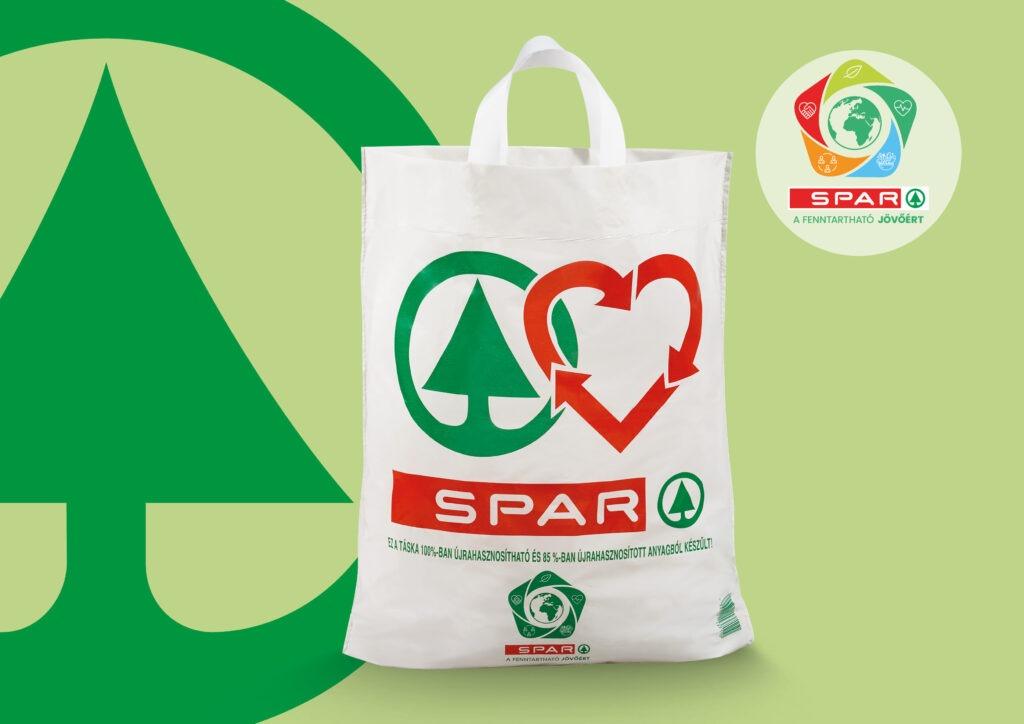Environmentally conscious shopping bags are made from SPAR’s plastic waste
Annually, a total of 150 tons of recyclable shopping bags are made from the plastic waste generated in its own network for SPAR Hungary. With this, the company has taken a big step towards the reasonable recycling of the resulting waste films and significantly reduces the amount of waste to be destroyed, thereby reducing carbon dioxide emissions and contributing to a smaller ecological footprint.

“Through sustainability initiatives, our company tries to reduce the amount of waste film generated in the SPAR network year after year. In addition, in the past year we took a significant step in relation to being able to utilize part of our generated plastic waste with an innovative initiative based on circular waste management. In our new program, our partner makes shopping bags from the plastic waste generated at the company, which can also be recycled. These products are now available in our stores,”
explained Márk Maczelka, head of communications at SPAR Hungary.
As Márk Maczelka said: plastic film waste is collected from all of SPAR’s locations and delivered to its two logistics centers for baling. MOHU Zrt. has been the owner of the generated waste since last year, but SPAR Hungary received a special permit from the waste management company to hand over as much plastic film waste to the expert partner as is used to make recycled shopping bags.
Related news
40 secure jobs, sustainable solutions – new BURGER KING® in Csepel
🎧 Hallgasd a cikket: Lejátszás Szünet Folytatás Leállítás Nyelv: Auto…
Read more >Fashion, drones and sustainability – the new face of agriculture at the AgriTech InnoExpo event
🎧 Hallgasd a cikket: Lejátszás Szünet Folytatás Leállítás Nyelv: Auto…
Read more >Related news
(HU) Átadták a SIRHA Budapest 2026 Innovációs Termékverseny díjait
🎧 Hallgasd a cikket: Lejátszás Szünet Folytatás Leállítás Nyelv: Auto…
Read more >How does the forint exchange rate affect consumer prices?
🎧 Hallgasd a cikket: Lejátszás Szünet Folytatás Leállítás Nyelv: Auto…
Read more >HELL CITY has arrived, led by Michele Morrone
🎧 Hallgasd a cikket: Lejátszás Szünet Folytatás Leállítás Nyelv: Auto…
Read more >








